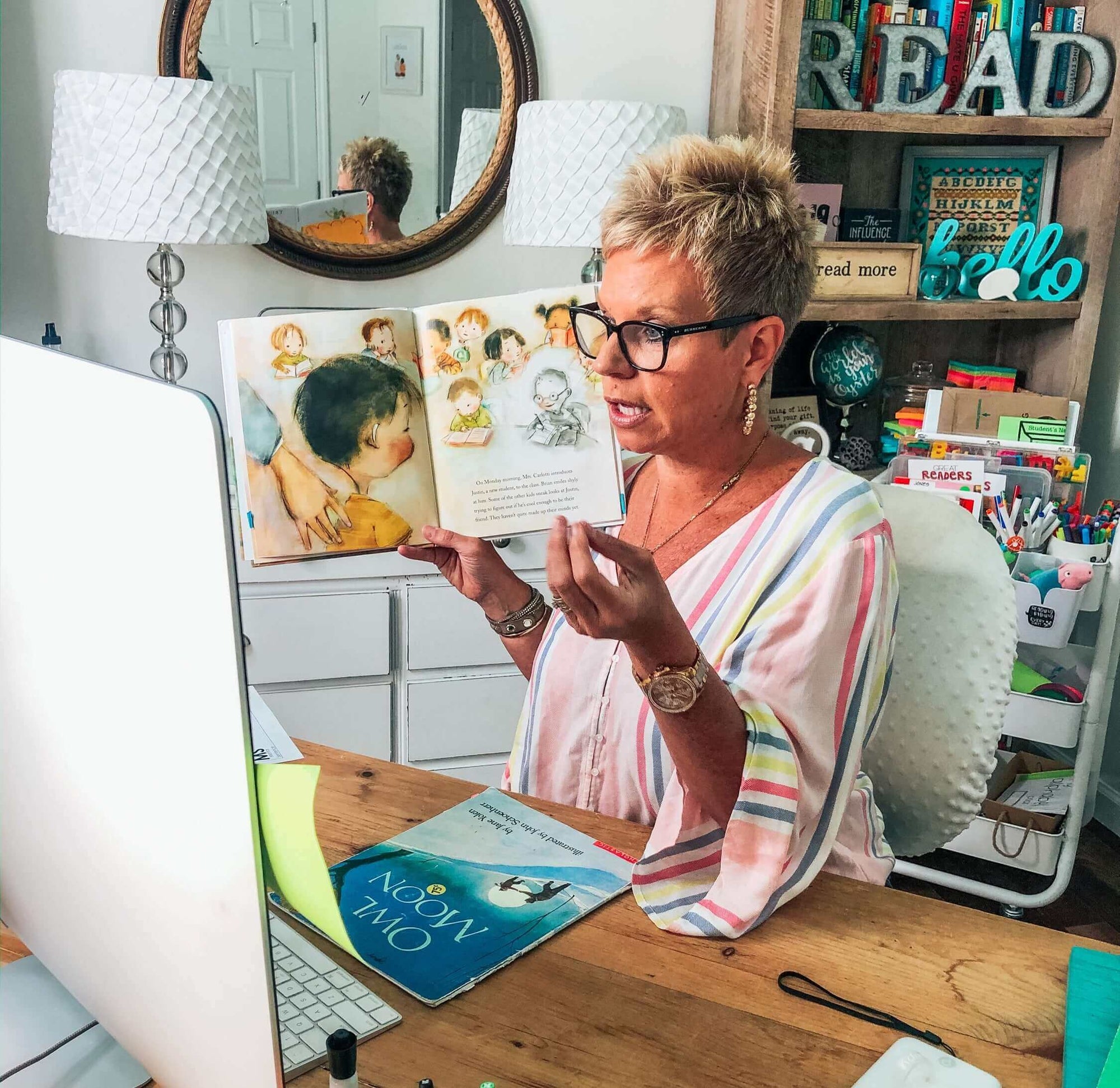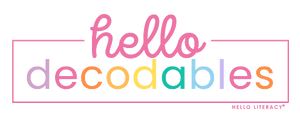
· By Jen Jones
Phonics Books: Your Best Bets for Boosting Reading Skills
Importance of Phonics for Boosting Reading Skills
Phonics books are specially designed to help children develop essential reading skills through systematic instruction in letter-sound relationships. If you're looking to boost your child's reading abilities, here are the key benefits of using phonics books:
- Builds strong foundational skills: Helps children understand the connection between letters and sounds.
- Increases decoding abilities: Allows kids to sound out words independently.
- Boosts reading confidence: Success in reading simple, decodable texts encourages more reading.
- Engages struggling readers: High-interest stories and structured content keep children motivated.
Phonics books are crucial tools for developing literacy in young learners and struggling readers. They introduce words gradually, ensuring children can read independently and successfully as they progress.
My name is Jen Jones, and with over 30 years in literacy education, I've dedicated my career to creating effective, engaging phonics resources that cater to young readers. The Hello Decodables™ series combines best practices in phonics instruction with exciting stories, making reading an enjoyable experience for your child.

What are Phonics Books?
Phonics books are specialized tools designed to assist children in learning to read by emphasizing the relationship between sounds and their corresponding letters or groups of letters. These books are structured to introduce new sounds and letters gradually, allowing children to build their reading skills step by step.
Definition
Phonics books are texts specifically crafted to support the systematic teaching of phonics. They utilize a controlled vocabulary that aligns with the phonics skills being taught. For example, a book might focus on the short vowel "a" and include words like "cat," "hat," and "mat" to reinforce that particular sound.
Purpose
The main purpose of phonics books is to provide practice in decoding words. Decoding is the ability to apply knowledge of letter-sound relationships to correctly pronounce written words. These books are designed to make this process easier by:
- Introducing a few new letters and sounds at a time.
- Using simple, repetitive text to build confidence.
- Providing a structured, sequential approach to reading.
Jen Jones, a literacy expert with over 30 years of experience, explains, "The Hello Decodables™ series combines best practices in phonics instruction with exciting stories, making reading an enjoyable experience for your child."
Benefits
Phonics books offer several key benefits:
-
Reading Fluency: By practicing with these books, children can improve their ability to read smoothly and accurately. The controlled vocabulary helps them focus on decoding without being overwhelmed by unfamiliar words.
-
Comprehension: As children become more fluent readers, they can better understand and enjoy the stories they read. This boosts their overall comprehension skills.
-
Confidence: Successfully reading a book on their own can be a huge confidence booster for young readers. It shows them that they can tackle new words and stories, which encourages a positive attitude towards reading.
-
Engagement: High-interest stories and illustrations keep children engaged. For example, the Hello Decodables™ series has transformed reluctant readers into book lovers by offering exciting narratives that hold their interest.
-
Age-Respectful Content: For older struggling readers, series like Hello Decodables™ offer contemporary illustrations and storylines that respect their age while still providing the phonics support they need.
Types of Phonics Books
When it comes to phonics books, there are three main types that cater to different learning needs: decodable books, activity books, and workbooks. Each type has its unique benefits and purposes, making them essential tools in any reading program.
Decodable Books
Decodable books are structured and sequential, designed to build reading skills progressively. These books introduce a few letters and sounds at a time, allowing students to read independently and successfully as they progress. For instance, the Hello Decodables™ series is perfect for beginners, introducing simple letter-sound correspondences.
Decodable books are essential for both emergent readers and those who need extra support, ensuring they can decode text and feel successful.
Activity Books
Activity books make learning fun and engaging. They often include games, puzzles, and interactive tasks that reinforce phonics skills in an enjoyable way. These books are perfect for keeping young readers motivated and interested. For example, Hello Decodables™ offers various activities that align with their decodable series, making learning feel like play.
Teachers and parents have noted:
"The fact that my students love the books is a huge bonus. They eagerly ask for the next one!"
Activity books are a great way to make phonics practice less of a chore and more of an adventure.
Workbooks
Workbooks provide practice and reinforcement of phonics skills. They are designed to complement decodable books and activity books, offering structured exercises that solidify what students have learned. Workbooks focus on specific phonics patterns and provide ample opportunities for practice.
For instance, teaching short vowel sounds can be done through targeted workbooks that cover different word families, such as:
- Short Vowel "A": "at" (cat, hat), "an" (can, man), etc.
- Short Vowel "E": "en" (ten, men), "ed" (bed, red), etc.
These workbooks are invaluable for reinforcing lessons and ensuring that students master each phonics skill before moving on.
In summary, decodable books, activity books, and workbooks each play a crucial role in a comprehensive phonics program. They provide structured, engaging, and effective ways to practice and reinforce phonics skills, catering to the diverse needs of beginning and struggling readers.
How Phonics Books Enhance Reading Skills
Phonics books are powerful tools that enhance reading skills in several ways. They improve fluency, boost comprehension, and build confidence in young readers. Let’s break down how these benefits unfold.
Fluency
Fluency is the ability to read text accurately, quickly, and with proper expression. Phonics books, especially decodable ones, are structured to help children practice this. By focusing on specific phonics skills and gradually increasing complexity, these books allow readers to become more proficient.
For example, the Dandelion Launchers series introduces only a few letter sounds at a time. This careful progression ensures that students can read independently and successfully from the outset.
Comprehension
Reading comprehension is the ability to understand and interpret what is being read. Phonics books aid in this by providing texts that are not only decodable but also engaging. When students can decode words easily, they can focus more on understanding the story.
A parent shared, “Remembering the day that my son, Nate, sneaked Magic Belt books still brings tears to my eyes. He became a book lover because of Magic Belt, so those books are very special to me and worth every penny!” This highlights how decodable texts can turn struggling readers into enthusiastic ones by making comprehension easier and more enjoyable.
Confidence
Confidence in reading is crucial for young learners. Many struggling readers feel defeated by texts that are too complex. Phonics books, particularly those designed for older children, are age-appropriate and respect the reader’s maturity while still being decodable.
The Moon Dogs Series is a great example. Aimed at older children, these books use contemporary illustrations and storylines that resonate with teens. This approach ensures that older beginners do not feel patronized, but instead, feel accomplished and motivated.
Teachers and parents have noted the impact of these books on students’ confidence. One teacher mentioned, “The fact that my students love the books is a huge bonus. On many occasions, I have had students eagerly ask me as soon as they see me, ‘Have you brought the next book?’” This excitement reflects growing confidence and a positive attitude toward reading.
Phonics books are not just about learning to read; they are about creating successful, confident, and enthusiastic readers.
Next, we'll discuss how to choose the right phonics book for different learners.
Choosing the Right Phonics Book
Selecting the right phonics book is crucial for fostering reading skills at various stages of a child's development. Here’s how to make the best choice based on the learner's needs.
For Beginners
For emergent readers, age-appropriate and simple texts are key. These books should introduce only a few letters and sounds at a time, allowing children to read independently from the outset.
Dandelion Launchers is a great example. This series is designed for beginner readers and introduces just a few letter/sounds at a time. The simplicity helps build confidence and fluency early on.

For Struggling Readers
Struggling readers need high-interest and decodable books that can keep them engaged while providing the necessary support. These books should follow a structured, sequential approach to phonics.
One parent shared, “Remembering the day that my son, Nate, sneaked Magic Belt books still brings tears to my eyes. He became a book lover because of Magic Belt.” This highlights the importance of engaging content for struggling readers.
Moon Dogs Series is perfect for older children at the early stages of reading. It features contemporary illustrations and storylines that resonate with older kids, making learning to read less of a chore and more of an adventure.

For Older Children
Older children who are beginning to read need age-respectful and complex texts. These books should challenge them but also be relatable and interesting.
The Talisman Series is designed for older children and includes more complex storylines and vocabulary. This series ensures that older readers are not bored by content that feels too young for them, while still providing the decodable structure they need.
A teacher noted, “For some, a Talisman book is the first book the child has ever read with great excitement.” This excitement can be a game-changer for older struggling readers.

Next, we'll answer some frequently asked questions about phonics books.
Frequently Asked Questions about Phonics Books
What do phonics books do?
Phonics books are designed to help children learn to read by focusing on the relationship between letters and sounds. They introduce words and word structures in a carefully planned sequence, allowing students to apply new phonics skills and build confidence in their reading abilities.
Key Benefits: - Fluency: Phonics books help children read more smoothly and quickly by practicing sound patterns. - Skill Reinforcement: These books provide repeated exposure to phonics rules, helping to solidify reading skills.
As one teacher shared, "The magic for these kids was finding a series that they could decode, that could keep their interest, that motivated hard work, and that made them sound and feel like successful readers."
What age are Jolly Phonics books for?
Jolly Phonics books are typically aimed at children in the early stages of learning to read, usually from ages 4 to 7. These books are structured to match the developmental stages of young readers, introducing simple phonics concepts and gradually increasing in complexity.
Development Stages: - Ages 4-5: Focus on basic letter sounds and simple words. - Ages 6-7: Introduce more complex sounds and word structures.
These books are designed to grow with the child, ensuring they are always engaging and appropriately challenging.
What is a phonics workbook?
A phonics workbook is a learning tool that provides exercises and activities to reinforce phonics skills. These workbooks are structured to follow a phonics curriculum, offering practice in areas like letter recognition, sound blending, and word formation.
Skill Levels: - Beginners: Simple tasks like matching letters to sounds or tracing letters. - Intermediate: More complex activities like forming words and simple sentences. - Advanced: Exercises that involve reading short passages and answering comprehension questions.
Phonics workbooks are a practical way to practice reading skills outside of reading books, providing a well-rounded approach to literacy development.
Next, we'll wrap up with some final thoughts on the importance of phonics books in achieving reading success.
Conclusion
Phonics books are a game-changer in the journey to reading success. They offer structured, systematic, and engaging ways to build foundational reading skills. At Hello Decodables, we believe every child deserves the chance to unlock reading.
Reading Success:
Our decodable books are designed to ensure that every child, whether a beginner or a struggling reader, can progress at their own pace. By introducing new letters and sounds incrementally, our books help children read confidently and fluently. One parent shared, "My son sneaked Magic Belt books. Before that, he had never been excited about reading. Now, he’s a book lover!" This transformation is what reading success looks like.
Empowerment:
Empowering children through reading is at the heart of what we do. Our books are not just about decoding words; they are about making children feel like successful readers. Teachers and parents have shared stories of students eagerly asking for the next book, feeling proud of their reading achievements. For some, a Talisman book is the first book they've read with excitement.
Choosing the right phonics book can make all the difference. For beginners, we recommend our Dandelion Launchers series. For older children, the Moon Dogs Series offers age-respectful content that keeps them engaged.
In summary, phonics books are a powerful tool in achieving reading success and empowering young readers. At Hello Decodables, we are committed to making this journey as effective and enjoyable as possible. Explore our range of phonics books and start your child's reading adventure today!
Discover our digital products and see how Hello Decodables can make a difference in your child's reading journey.
